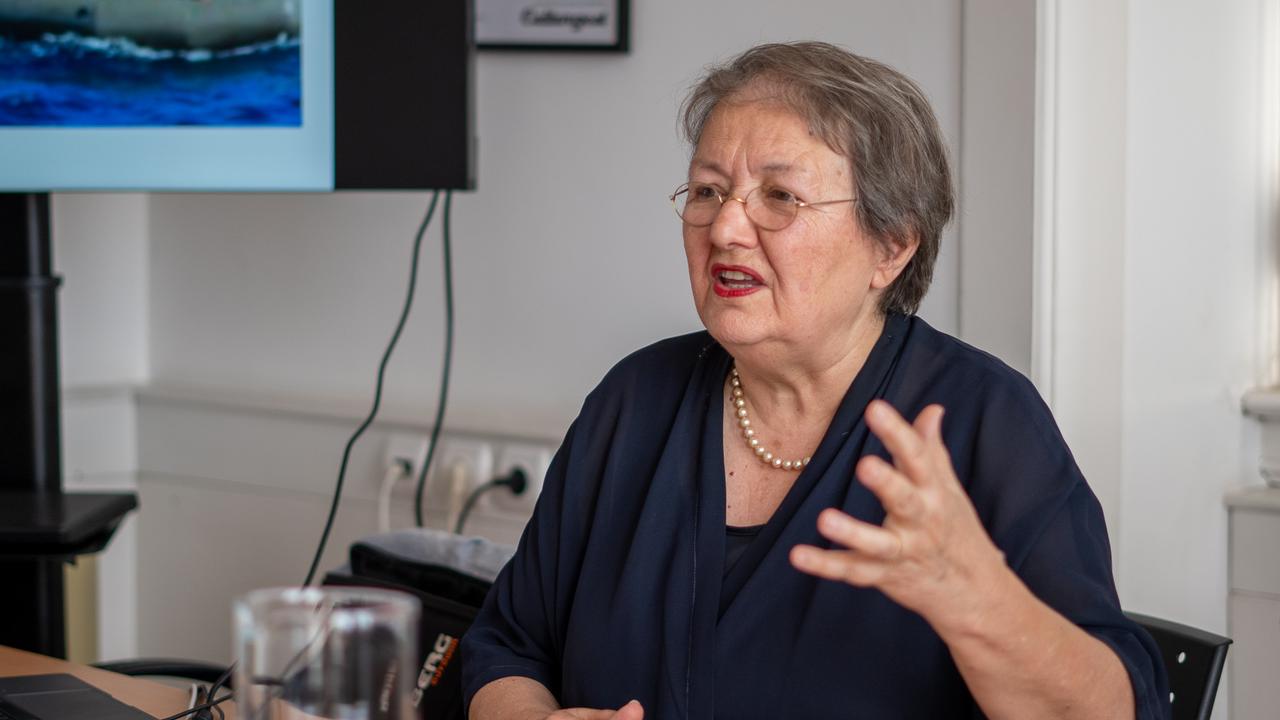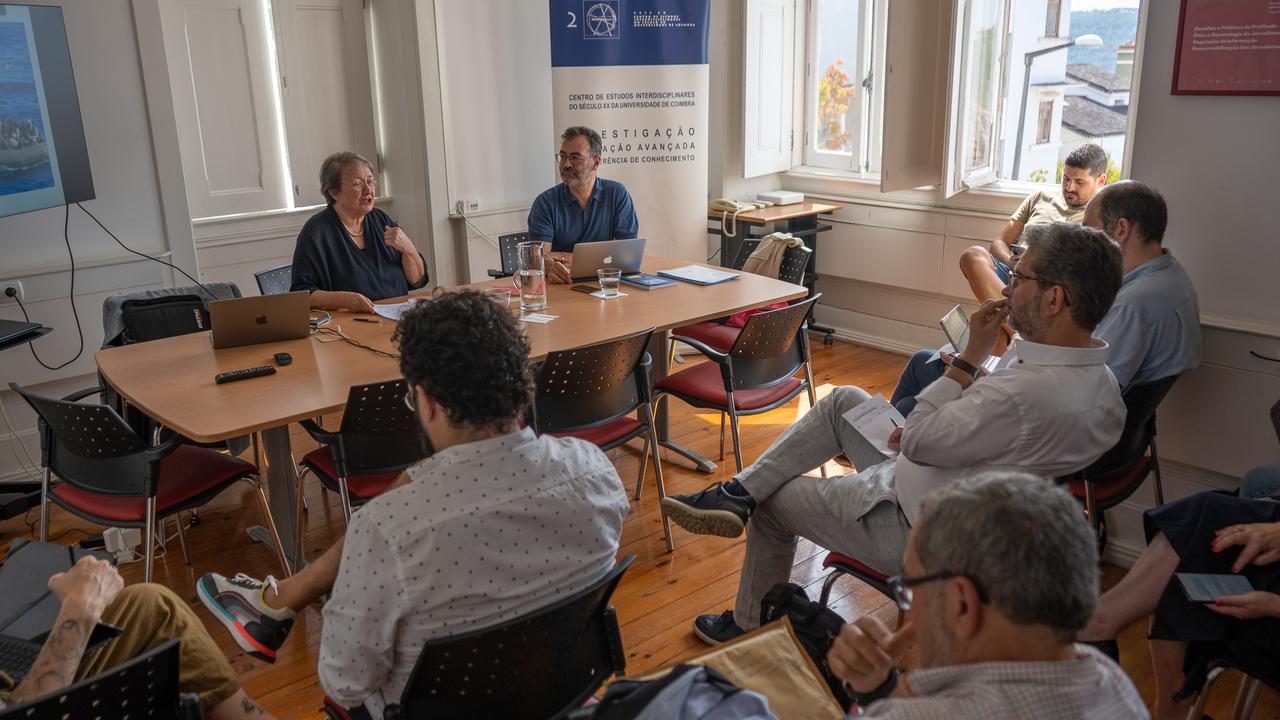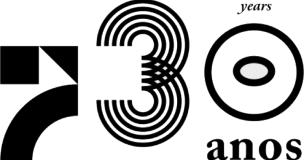Aula Inaugural do Doutoramento em Estudos Contemporâneos CEIS20

PT
A Aula Inaugural assinala o início do ano letivo de 2022/23 no Doutoramento em Estudos Contemporâneos CEIS20.
Decorrerá no dia 19 de setembro (segunda-feira), pelas 14h30 na Sala de Seminários do CEIS20 (1º piso). Olga Pombo é a convidada para esta sessão, onde fará uma intervenção subordinada ao tema "Significado, atribulações e destino das instituições cognitivas universais".
Olga Pombo é Doutorada em Filosofia pela Universidade de Lisboa, tendo sido fundadora e coordenadora do Centro de Filosofia da Universidade de Lisboa. Fundou e é atualmente diretora da revista Kairos – Journal of Philosophy and Science (De Gruyter), membro do comitê científico do Reseau National des Maisons des Sciences de l'Homme (Paris), do Centro Studi sulla Natura, L'Umano e l'Unita del Pensiero (Roma), e membro da comissão de honra do Plano Nacional de Leitura português (PNL 2027).
Consulte o resumo da intervenção e uma breve biografia da convidada em seguida.
Resumo
Começarei por discutir a necessidade e o sentido original das instituições cognitivas universais, ou seja, desse conjunto de meios que garantem a produção, conservação, transmissão e legitimação do conhecimento científico. Veremos como essas configurações institucionais, condições de possibilidade da ciência, simultaneamente materiais e necessárias, universais e transversais ao tempo, meios tangíveis que permitem a invenção da ciência e o seu constante desenvolvimento, têm sido desafiadas, perturbadas, distorcidas, até mesmo corrompidas, de tal forma que a própria ideia de ciência parece ter sido desvirtuada. Tentaremos, por fim, interrogar alguns dos possíveis futuros que nos estão prometidos, tendo em conta as transformações profundas que essas instituições atravessam na nossa contemporaneidade.
Olga Pombo é doutorada pela Universidade de Lisboa e, em 2009, obteve o grau de Agregação em História e Filosofia da Ciência. Foi Professora do Departamento de História e Filosofia da Faculdade de Ciências da Universidade de Lisboa (até 2016) da qual foi Presidente entre 2007 e 2012. Foi fundadora e Coordenadora do Centro de Filosofia da Universidade de Lisboa desde a sua origem em 2003 até 2016. Foi Coordenadora de vários projetos de investigação e Investigadora Associada de vários outros projetos nacionais e internacionais. É membro fundador da "Société de Philosophie des Sciences" (Paris), membro honorário da "Associação Internacional para o Estudo das Controvérsias", membro da comissão de honra do "Plano Nacional de Leitura" (PNL 207) e, atualmente, Presidente do Conselho de Assembleia Geral da Sociedade Das Lógicas Portuguesas. Foi fundadora e Diretora de Programas do Programa Internacional de Doutoramento da FCT em Filosofia, Tecnologia, Arte e Sociedade (até 2016). É autora e editora, tanto a nível nacional como internacional, de numerosas publicações e tem colaborado e lecionado intensamente em Portugal e no estrangeiro. Os seus interesses dividem-se pela Filosofia Moderna (especialmente Leibniz), Filosofia da Ciência (Unidade da Ciência, Interdisciplinaridade, Epistemologia Geral, Imagem Científica, Poincaré, Neurath, Bachelard), Filosofia da Linguagem (Leibniz, Hobbes, Spinoza, Rousseau, Hegel), mas também pelo Enciclopedismo, Hipertexto, Filosofia da Escola e, mais recentemente, Ciência e Arte, cujo ensino iniciou em Portugal. É actualmente head Polo de Investigação Transversal do CFCUL, Diretora da revista "Kairos - Journal of Philosophy and Science" (De Gruyter), membro do comité científico do "Reseau National des Maisons des Sciences de l'Homme" (Paris) e do "Centro Studi sulla Natura, L'Umano e l'Unita del Pensiero (Roma).
EN
The Inaugural Class marks the beginning of the 2022/23 academic year in the CEIS20 Ph.D. in Contemporary Studies.
It will take place on September 19th (Monday), at 2:30 pm in the CEIS20 Seminar Room (1st floor). Olga Pombo is the guest speaker for this session, where she will be discussing "Meaning, tribulations and destiny of universal cognitive institutions".
Olga Pombo has a Ph.D. in Philosophy from the University of Lisbon, having been the founder and coordinator of the Philosophy Centre at the University of Lisbon. She founded and is currently director of the journal Kairos – Journal of Philosophy and Science (De Gruyter), member of the scientific committee of the Reseau National, of the Centro Studi sulla Natura, L'Umano Unita del Pensiero (Rome), and member of the honorary committee of the Portuguese National Reading Plan (NLP 2027).
The abstract of the intervention and a brief biography of our guest below can be read below.
Abstract
I will begin by discussing the necessity and original meaning of the universal cognitive institutions, that is, a set of institutional means that guarantee the production, conservation, transmission and legitimation of scientific knowledge. We will see how the those institutional configurations that allow the invention of science and its development, have been challenged, disturbed, troubled, harmed, even corrupted, in such a way that the very idea of science may have been distorted. And we will try to anticipate some of their possible futures.
Olga Pombo got her degree in Philosophy at University of Lisbon, a Master at the New University of Lisbon and a PhD at the University of Lisbon. In 2009, she got the Aggregation in History and Philosophy of Science. She was Professor of the Department of History and Philosophy of the Science of the Faculty of Sciences of the University of Lisbon (until 2016) of which she was the President from 2007 until 2012. She was proponent, founder and Coordinator of the Centre for Philosophy of the University of Lisbon since its origin in 2003 up until 2016. She was Coordinator of several research projects, namely, “Encyclopedia and Hypertext” (1999-2002), “Scientific Culture. Conceptual migrations and Social Contaminations " (2002-2005), “Image in Science and the Art” (2006-2011), “Universal Logics and Unity of Science” (2008-2010) and “Knowledge Dynamics in the Field of Social Sciences: Abduction, Intuition and Invention” (2011-2012), and Associate Researcher of several other national and international projects. She is founder member of the “Société de Philosophie des Sciences” (Paris), honorary member of the “International Association for the Study of Controversies”, and currently President of the General Assembly Board of the “Portuguese Logics Society”. She was the proponent, founder and Program Director of the FCT international Doctoral Program on Philosophy of Science, Technology, Art and Society (until 2016). She was selected as one of the 100 science women to be part of the book “Women in Science” edited by Ciência Viva (2016). She authored and edited, both nationally and internationally, numerous publications and has collaborated and lectured intensively in Portugal and abroad. Her interests divide by Modern Philosophy (especially Leibniz), Philosophy of Science (Unity of Science, Interdisciplinarity, general Epistemology, Scientific Image, Poincaré, Neurath, Bachelard), Philosophy of Language (Leibniz, Hobbes, Spinoza, Rousseau, Hegel), but also on Encyclopedia, Hypertex and Philosophy of School and, more recently, on Science and Art whose teaching she has initiated in Portugal. She founded and is currently director of the journal “Kairos - Journal of Philosophy and Science” (De Gruyter), member of the scientific committee of the” Reseau National des Maisons des Sciences de l’Homme” (Paris), of the “Centro Studi sulla Natura, L’Umano e l’Unita del Pensiero (Roma), and member of the honour commission of the Portuguese “Reading National Plan” (PNL 2027).




©Cláudia Morais





